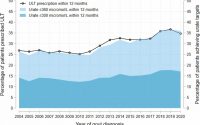What Is Nipah Virus? Outbreak in India Kills at Least 3
At least three people in India have died from a rare virus known as Nipah virus, according to news reports.
The deaths occurred in Kerala, a state in southern India, according to the BBC. While three deaths have been confirmed so far, an additional six deaths are suspected, and 25 other people have been hospitalized with symptoms of the infection, the BBC reported.
Nipah virus infection is an emerging disease that was first identified in 1999 during an outbreak among pig farmers in Malaysia and Singapore, according to the Centers for Disease Control and Prevention (CDC).
The virus is thought to naturally infect fruit bats (of the genus Pteropus), but it can also infect pigs and other domesticated animals, as well as humans, according to the World Health Organization (WHO). The virus can also spread from person to person. [10 Deadly Diseases That Hopped Across Species]
Nipah virus can cause an inflammation of the brain known as encephalitis, according to the CDC. Symptoms can include fever and headache, followed by drowsiness, disorientation and confusion. People who are infected with the virus may fall into a coma within 48 hours of showing symptoms, the CDC says.
The virus can be highly lethal, with an average fatality rate of around 75 percent, according to the WHO.
Human infections with Nipah virus in India and Bangladesh have been linked with eating raw date palm sap contaminated by fruit bats, and contact with bats, the CDC said.
There's no drug to treat the illness and no vaccine to prevent it. "We are now concentrating on precautions to prevent the spread of the disease since the treatment is limited to supportive care," Rajeev Sadanandan, Kerala's health secretary, told the BBC today (May 21).
Original article on Live Science.
Source: Read Full Article


